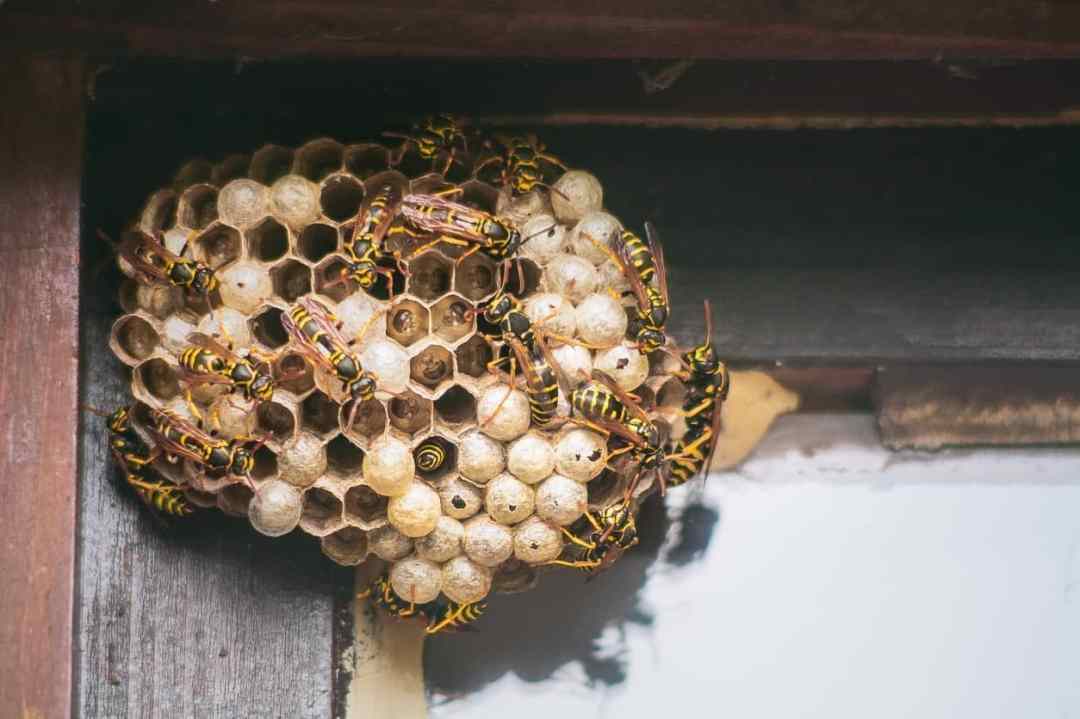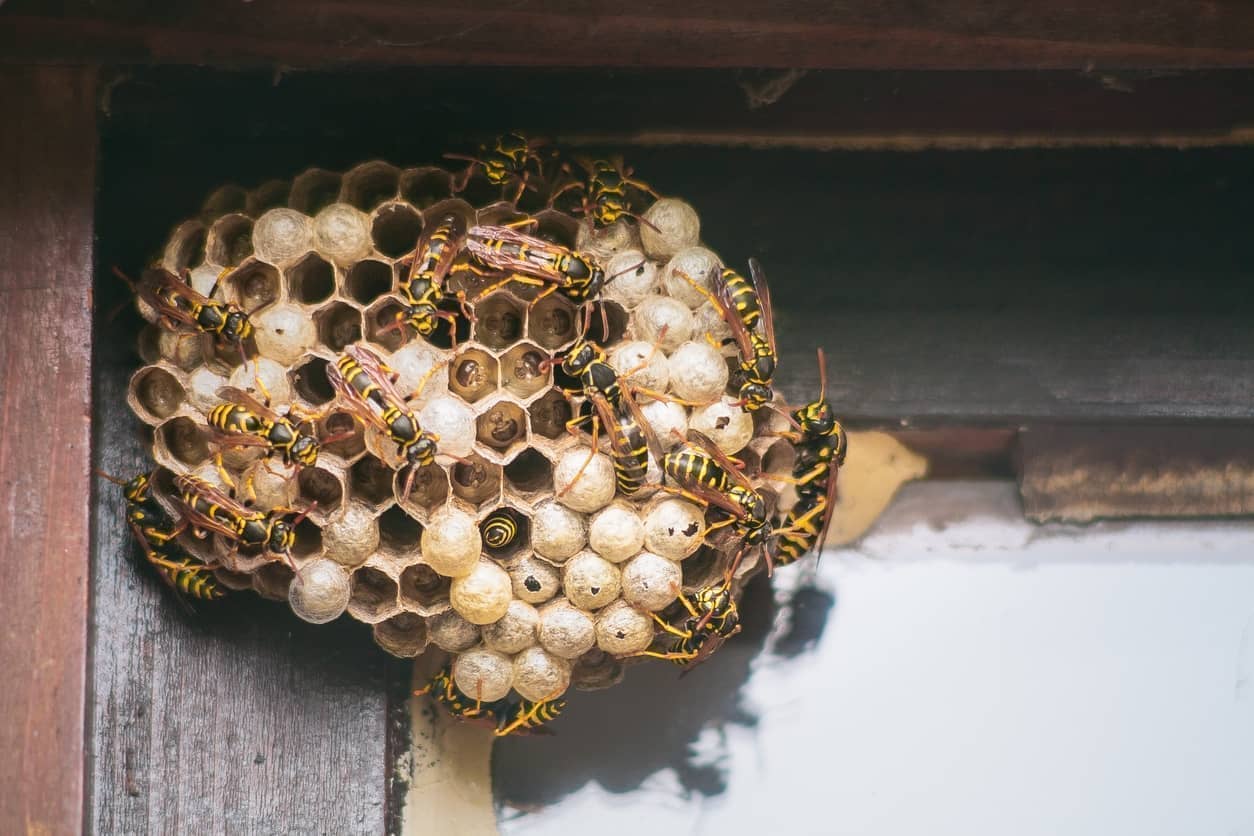The first sign that something was awry was what sounded like an electrical crackling noise coming from the corner of our downstairs hallway and growing louder every day. Having ruled out our dodgy wifi (for once), I eventually turned my attention outside, where I found the cause. Wasps – hundreds of them – were swarming into a hole under the wall.
My husband suggested we hire an expert to get rid of their nest. I said we should save money and that I was perfectly capable of doing it myself. So I waited until nightfall, armed myself with a wasp-killing foam I’d bought on Amazon and covered up in as many clothes as possible. Tiptoeing to the hole, I squirted foam into it.
It was, I thought, a job well done. Until the next day, when hordes of wasps found their way inside our house – no doubt soon to be introduced to the mice, flies and gargantuan spiders that have also taken up residence here.
When I moved to the countryside from London four years ago, I thought I was heading for a quieter existence. I hadn’t counted on the myriad bugs that would be keeping me company. Whereas creepy-crawlies were an occasional occurrence in the capital, here they seem to be everywhere – and never more so than in September, the equivalent of a holiday rental changeover period, when our summer guests (wasps and flies) are refusing to leave but our autumn arrivals (mice and spiders) have already checked in.
September is the equivalent of a holiday rental changeover period, when our summer guests (wasps and flies) are refusing to leave but our autumn arrivals (mice and spiders) have already checked in
They allocate their own rooms without any assistance from me, so I at least know that I’m more likely to encounter flies in the kitchen and spiders chilling out in the bathroom (the mice, alas, don’t seem to have got the memo). Nonetheless, the upshot, for a squeamish soul such as myself, is a state of perma-terror in which every movement in the corner of my eye makes me jump, every sensation on my skin a sign I’ve been stung or bitten.
This summer’s heatwave has not helped – at least when it comes to wasps, which work in groups of several thousand and thrive in hot, dry temperatures. Some pest controllers are reporting that calls about their nests have more than doubled, leading experts to dub this the ‘year of the wasp’. Of course wasps inhabit cities too, but they choose secluded spots to settle. Without wanting to boast, I’d wager that the hole under our rural home is their dream destination, not least given the apple trees nearby proffering a permanent sugar buffet.
The day after my failed foam spray attempt last week, I was alerted to their indoor arrival by a menacing low hum in the living room, where the air was burnished black and gold. By the time my heart rate had subsided, several hours later, they had died – that first evening I vacuumed 83 wasps from the carpet.
I switched to wasp-killing powder, applied at night after they’d gone to bed. It has blocked the hole, but they’re still swarming stubbornly outside, attracted to the pheromones that mark their nest, and flying inside through an undisclosed location – always after lunch, bizarrely – to live out their final hours.
As I ponder my next steps, I am putting down poison for the mice that also arrived last week, of which I am phobic. They made their presence known with a scuffling behind our sofa. I made my feelings clear with a scream loud enough to be heard in London, where mice reigned mercilessly over our street of terraced houses. Here, they operate differently. Rural mice are more likely to be field mice, which breed outdoors in summer months, letting infestations go undetected until the weather turns. They’re less aggressive than urban house mice that chisel their way through cereal packets with no fear of human reprisal.
‘They’re really quite cute,’ insisted my husband regretfully, after burying the one our son found on the living room floor this weekend. But no amount of humane traps or plug-in ultrasonic deterrents have worked. I am tired of announcing my arrival loudly before I enter a room (‘Hello, I’m coming in!’) in the hope the sound of my voice will make them scarper, and the plucky mouse who somehow managed to carry a block of poison from one side of our bedroom to the other before I woke up this morning alleviated any lingering guilt. Still, our two children have at least been persuaded not to leave snacks lying around in their bedrooms any more, lest the mice impose on their space. Every cloud.
If only the same were true in the kitchen, where I am scrubbing surfaces like a mad woman in an attempt to dissuade flies from hanging around. They breed on decaying organic matter such as manure, so living next to a farm means we are prime targets, our most mundane conversations punctuated with wild hand gestures as we try to stop them settling on our skin. We’ve invested in two tennis racquet-shaped zappers that supposedly attract flies with ultraviolet light before killing them on contact with a high-voltage grid. But I doubt even Rafael Nadal would have the reflexes to swot the flies before they move out of reach. I usually give up and leave them to enjoy the kitchen without me, which feels a bit of a rum deal given their contribution to our household bills.
Spiders, meanwhile, reach their full size in September – mating season – so although there aren’t actually more of them around, the males are more visible as they search for females. While not more common in the countryside, spiders are more likely to infiltrate older properties with gaps in windows, which, like ours, are often rural – and which must explain why we’re hosting at least one house spider the diameter of a cricket ball on any given week.
When I first saw a spider this size in our bathroom (they love it here as they need moisture to survive), thick furry legs stock-still, I was stupefied such a creature could exist out of a zoo. Now, however, I keep my composure when our paths cross, putting a glass over them, sliding a piece of card underneath and gently carrying them outdoors. To make them seem less imposing, I sometimes give them a name. Our latest was called Burt.
Compared with our other house guests, he didn’t cause any trouble. In fact, he was so esteemed my daughter told her new school class about him. Spiders don’t sting, after all, or make irritating noises, or startle me by running full pelt in front of the television. Best of all, they dine on insects. Some even eat wasps – although I think Burt might have had his work cut out with the current crew downstairs.







Comments